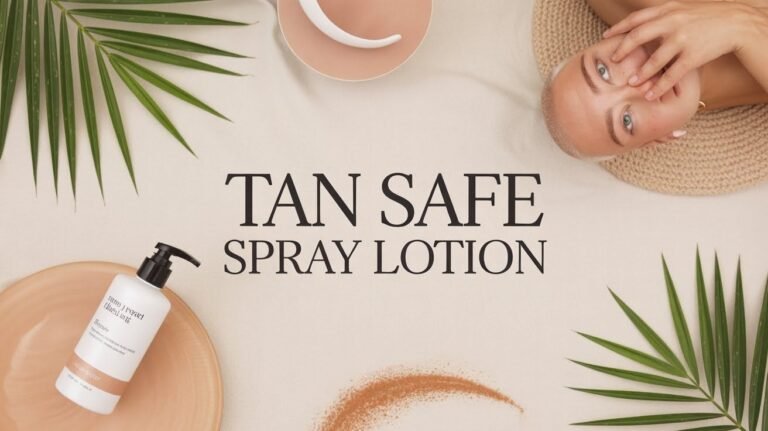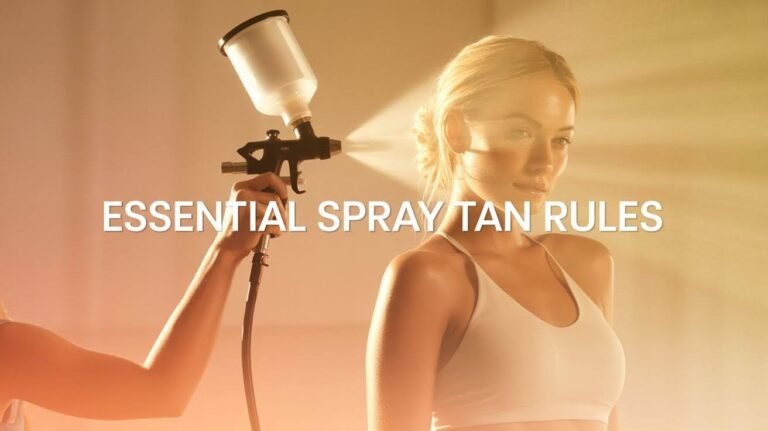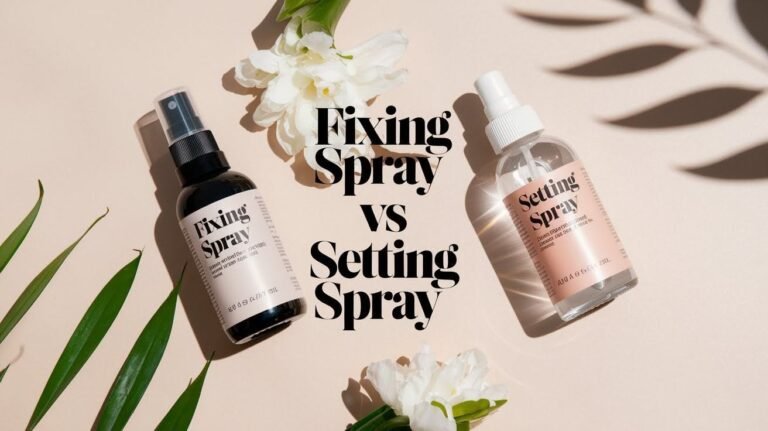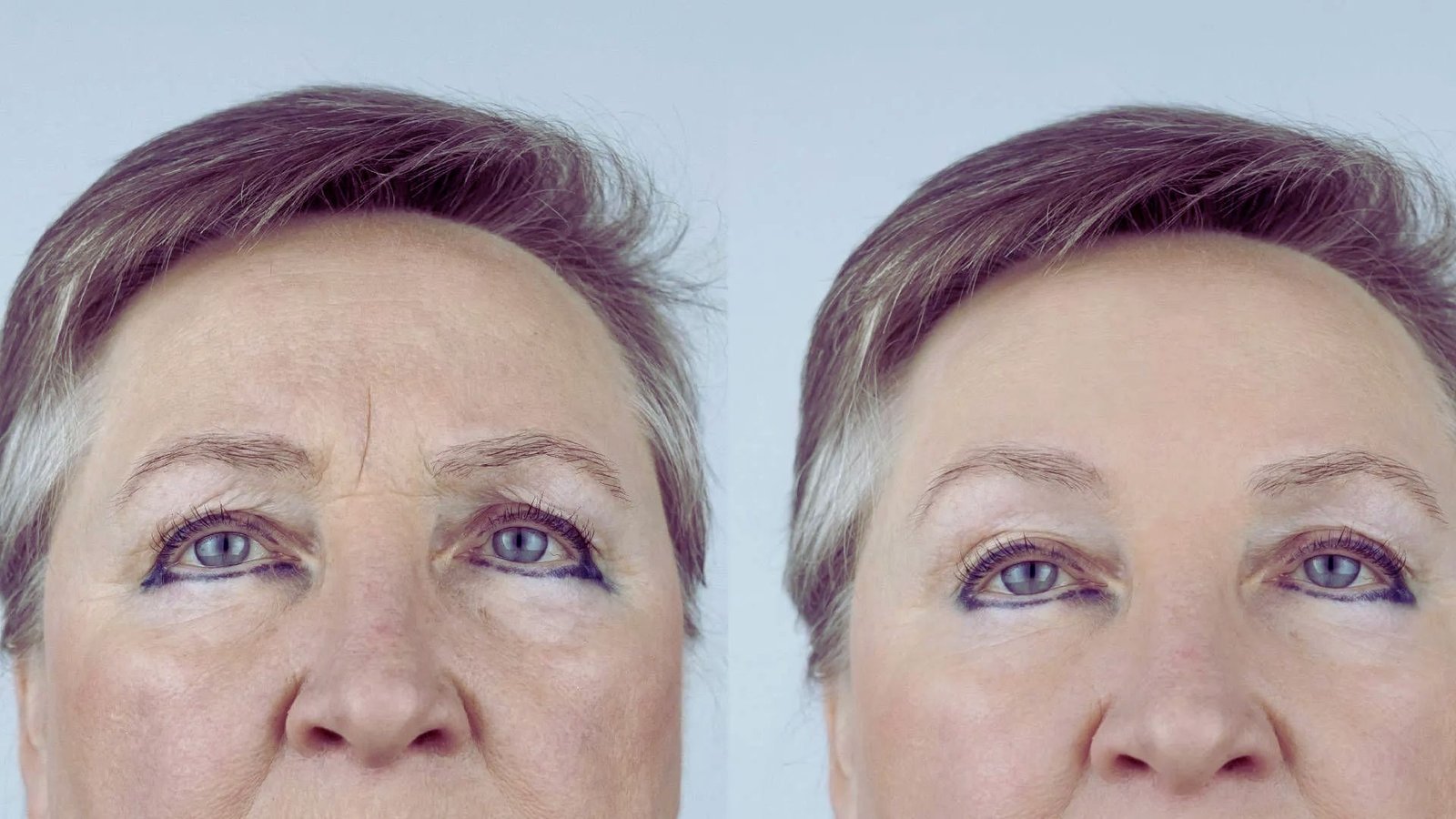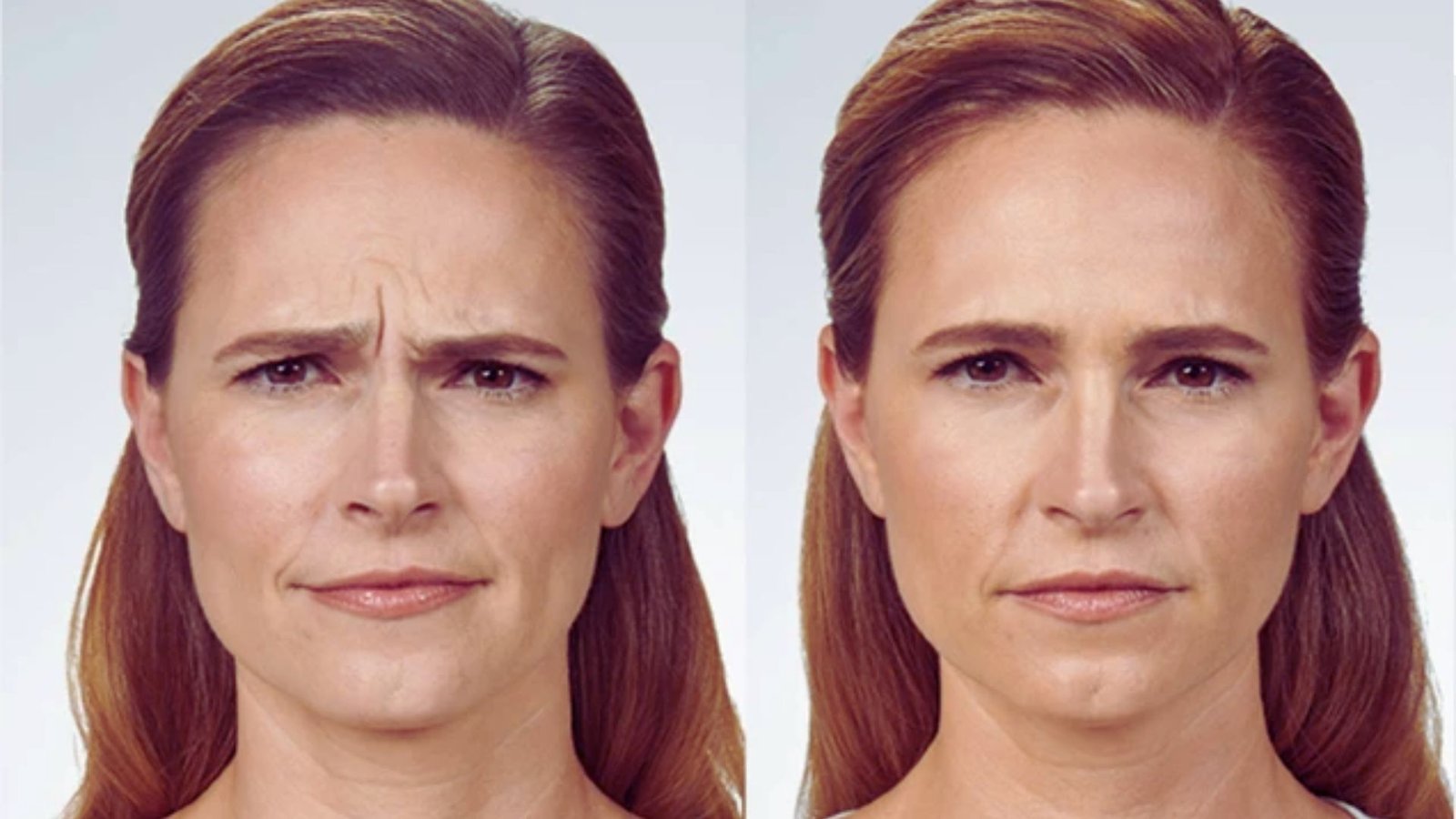What Deficiency Causes Sunken Eyes?
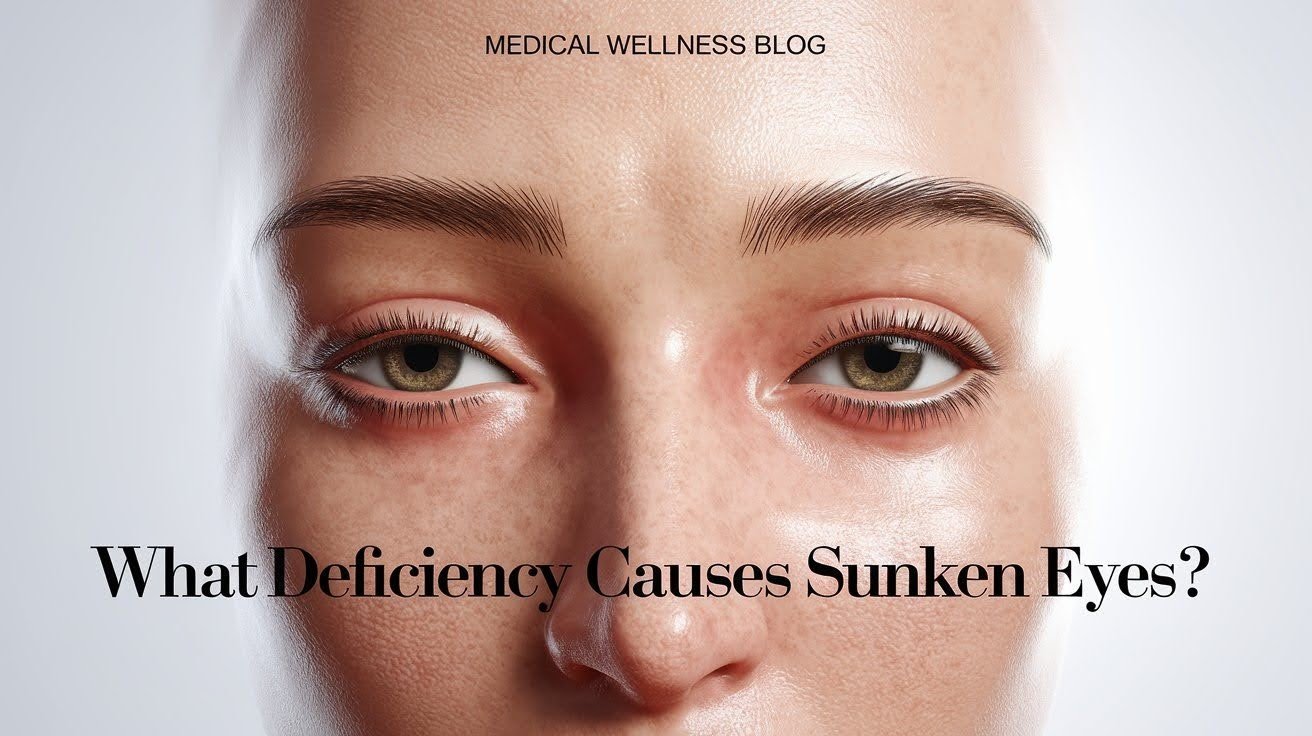
Have you noticed your eyes looking more recessed or hollow than usual? Sunken eyes can make you appear tired, older, or unwell. This condition affects many people and can stem from various causes.
Your eyes might look deep-set due to natural aging, dehydration, or nutritional gaps. Sometimes medical conditions play a part too.
In this article, we’ll cover:
- Common reasons why eyes appear sunken
- How vitamin and mineral shortages contribute
- Simple ways to address the problem
- When to see a doctor
We’ve researched the science behind this issue. Our goal is to give you accurate, helpful information you can trust.
By the end of this guide, you’ll understand what might be causing your sunken eyes and have practical steps to take.
Understanding Sunken Eyes
This section explains what sunken eyes look like and when they signal a health problem.
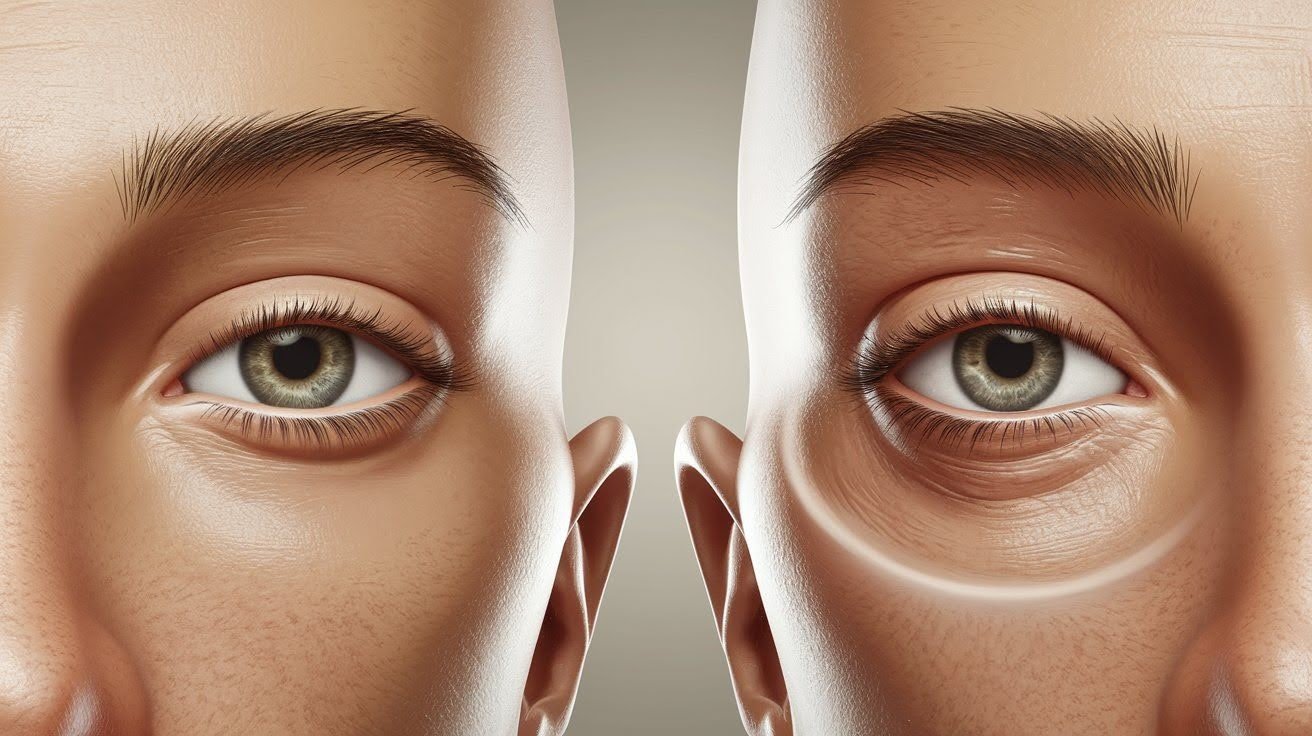
What Are Sunken Eyes?
Sunken eyes appear deeper set in the face than normal, creating a hollow or tired appearance.
Sunken eyes happen when your eyes sit further back in their sockets. This creates shadows around your eye area. Your eyes might look smaller or more recessed than they used to.
People often describe sunken eyes as:
- Hollow-looking
- Deep-set
- Shadowy around the edges
- Making you look exhausted
This condition can make you appear older than your actual age. Others might ask if you’re feeling sick or if you haven’t been sleeping well. The shadows under your brow bone become more obvious. Your eyelids might seem heavier too.
Are Sunken Eyes Dangerous?
Most sunken eyes are harmless cosmetic issues, but some cases need medical attention.
In most cases, sunken eyes are not dangerous. They’re often just a cosmetic concern that bothers you when you look in the mirror. Many people develop them naturally as they age.
However, sudden changes in your eye appearance can signal health problems.
You should see a doctor if you notice:
- Rapid onset of sunken eyes
- Pain or discomfort
- Vision changes
- Other symptoms like weight loss or fatigue
Gradual changes over years are usually normal. Quick changes over weeks or months need professional evaluation. Trust your instincts about your body.
Common Causes of Sunken Eyes
Several lifestyle habits and medical conditions can make your eyes appear more recessed and hollow.
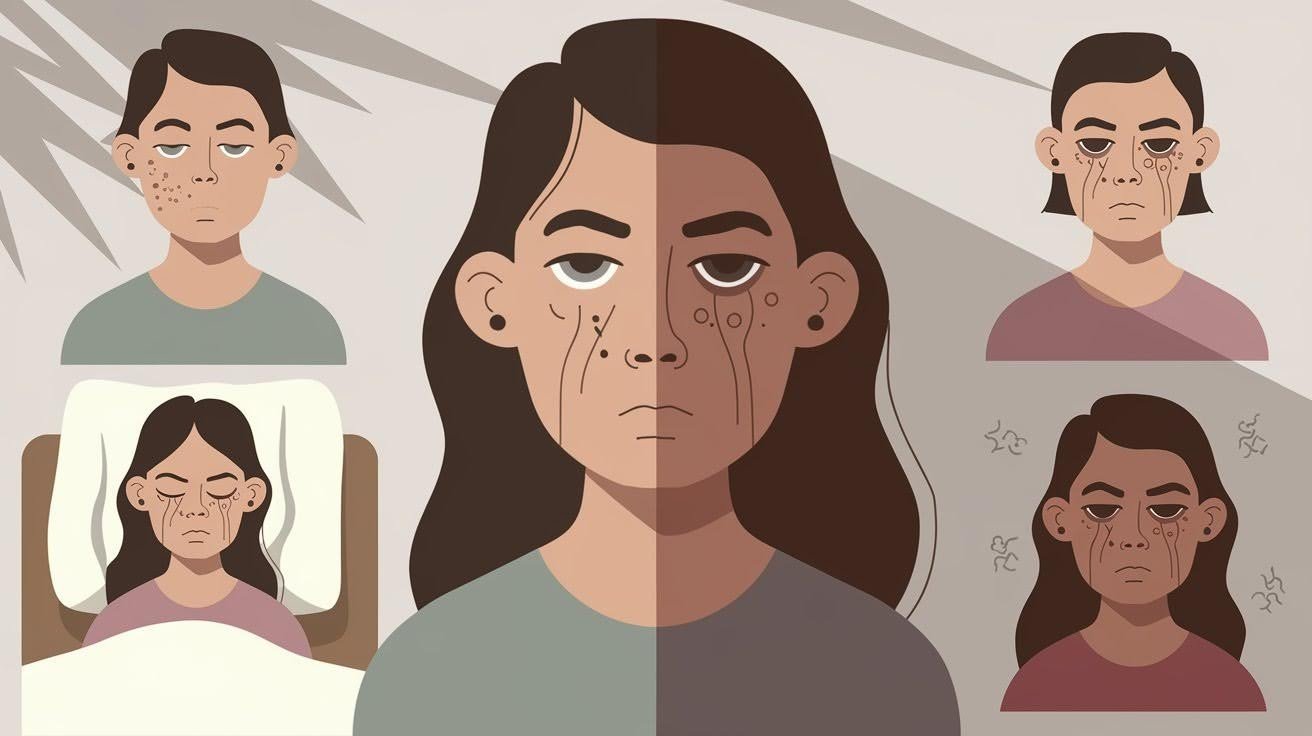
Lifestyle Factors
Daily habits and natural aging processes often contribute to the sunken eye appearance.
Not drinking enough water affects your entire body, including the area around your eyes. When you’re dehydrated, the skin loses its plumpness. This makes your eyes look more sunken. Your body pulls water from less critical areas first.
Lack of quality sleep shows up quickly around your eyes. When you don’t rest enough, blood vessels dilate. This creates dark circles and puffiness. Over time, chronic sleep problems can make your eyes appear more recessed.
Medical Causes
Certain health conditions and sudden body changes can create a sunken eye appearance.
Long-term health problems can affect how your face looks. Conditions that cause inflammation or affect nutrition absorption may contribute. Autoimmune diseases sometimes impact the tissues around your eyes.
Losing weight rapidly removes fat from your face, including around your eyes. This happens with extreme dieting, illness, or stress. The fat pads that normally support your eyes shrink quickly.
Vitamin and Nutrient Deficiencies Linked to Sunken Eyes

Missing key vitamins and minerals can weaken the skin and tissues around your eyes, making them appear more hollow.
Vitamin C Deficiency
Without enough vitamin C, your body can’t make strong collagen to support the delicate skin under your eyes.
Your body needs vitamin C to build collagen properly. This protein acts like scaffolding for your skin. When you don’t get enough vitamin C, collagen production slows down.
The skin under your eyes is already very thin. Without strong collagen support, it becomes even thinner and more fragile. This creates a sunken look because there’s less tissue holding everything in place.
Signs you might need more vitamin C:
- Slow healing cuts and bruises
- Dry, rough skin
- Frequent colds
- Tired feeling
Citrus fruits, berries, and leafy greens provide plenty of vitamin C. Most people need about 75-90 mg daily.
Vitamin K Deficiency
Low vitamin K levels can worsen blood flow under your eyes, creating dark circles and a hollow appearance.
Vitamin K helps your blood clot normally and supports healthy circulation. When levels drop, blood doesn’t move as well through tiny vessels under your eyes.
You might have low vitamin K if you notice:
- Easy bruising
- Heavy menstrual periods
- Bleeding gums
- Dark under-eye circles that don’t improve with sleep
Leafy green vegetables contain the most vitamin K. Adults typically need 90-120 mcg per day.
Vitamin E Deficiency
Vitamin E protects skin cells from damage, and low levels can make the eye area look aged and sunken.
Vitamin E works as an antioxidant in your body. It protects cell membranes from damage caused by free radicals. This vitamin also helps maintain skin moisture and flexibility.
When vitamin E levels drop, skin around your eyes loses its ability to stay hydrated and bouncy. The area becomes more prone to damage from sun exposure and environmental stress. This accelerates the aging process.
Warning signs include:
- Very dry skin
- Muscle weakness
- Vision problems
- Frequent infections
Nuts, seeds, and vegetable oils are good sources. Most adults need about 15 mg daily.
Iron Deficiency (Anemia)
Low iron levels cause pale skin and fatigue, which can make your eyes appear more sunken and tired.
Iron carries oxygen throughout your body in red blood cells. When iron levels drop, your body can’t deliver enough oxygen to tissues. This affects how healthy and full your skin looks.
Other symptoms of low iron include:
- Extreme tiredness
- Shortness of breath
- Cold hands and feet
- Strange cravings for ice or starch
Women need about 18 mg of iron daily, while men need 8 mg. Red meat, beans, and fortified cereals help boost iron levels.
The Newly Identified Deficiency: C15:0 (Pentadecanoic Acid)
Scientists have recently found that lacking this special fatty acid can weaken your cells and contribute to premature aging around your eyes.
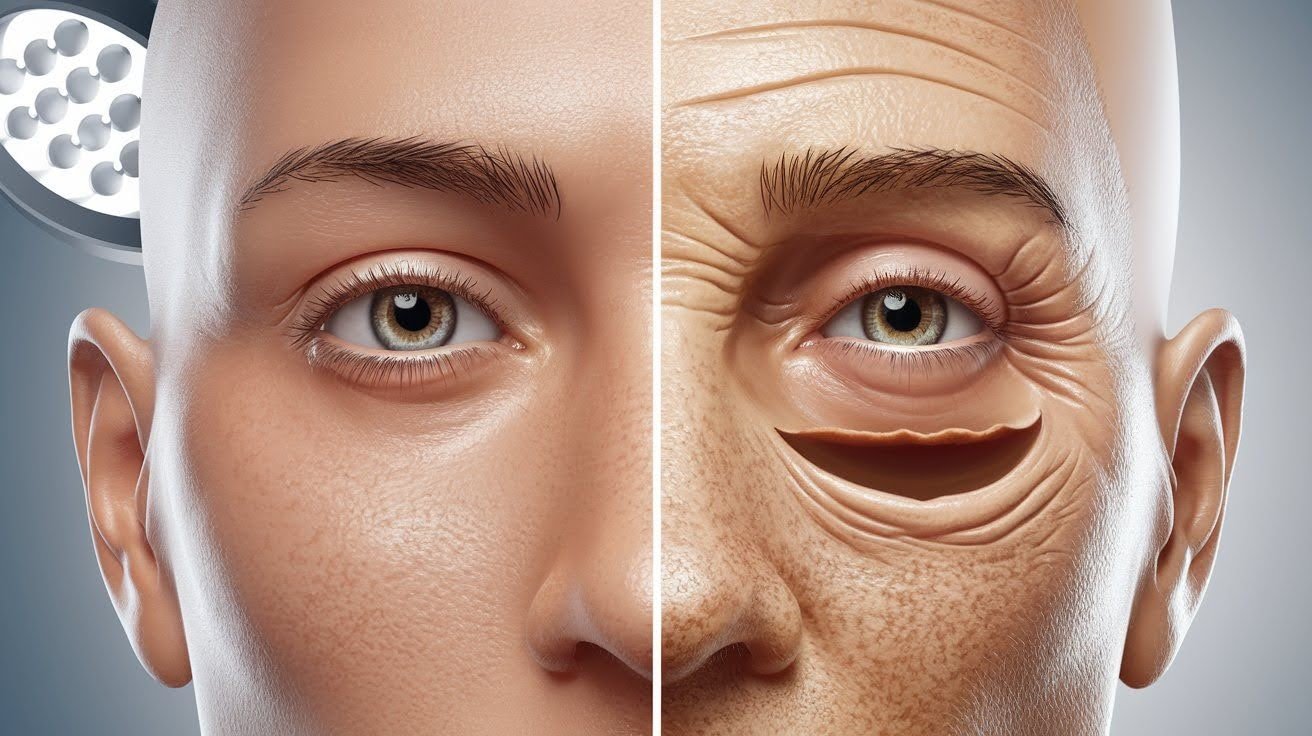
What Is C15:0?
C15:0 is a type of fat that your body needs but can’t make on its own, and most people don’t get enough of it.
C15:0 stands for pentadecanoic acid. It’s what scientists call an odd-chain saturated fatty acid. This means it has 15 carbon atoms in its structure, which makes it different from other fats.
For decades, researchers didn’t realize how important this fatty acid was. They thought your body could function fine without it. Recent studies changed that understanding completely.
This fatty acid comes mainly from:
- Whole milk and full-fat dairy products
- Certain fish species
- Some types of seaweed
Many people avoid these foods due to dietary trends or health concerns about saturated fats.
C15:0 and Cellular Health
This fatty acid strengthens your cell walls and helps prevent the kind of cellular damage that shows up as aging around your eyes.
C15:0 works at the most basic level of your body – inside your individual cells. It integrates into cell membranes and makes them stronger and more flexible. Think of it like adding reinforcement to the walls of a house.
Strong cell membranes protect the inside of your cells from damage. They also help cells communicate better with each other. This fatty acid particularly supports your mitochondria, which are like tiny power plants inside each cell.
This weakness shows up first in areas where cell turnover happens quickly:
- Skin around your eyes
- Blood vessel walls
- Connective tissue
The delicate skin under your eyes depends on healthy, strong cells to maintain its structure and appearance.
Signs of C15:0 Deficiency
Low levels of this fatty acid can speed up aging and make your eyes appear more sunken due to weakened tissue support.
C15:0 deficiency doesn’t happen overnight. It builds up slowly over months or years. The signs often get mistaken for normal aging or other health issues.
Premature Aging Without enough C15:0, your cells age faster than they should. This shows up as wrinkles, sagging skin, and loss of volume around your eyes. The fat pads that normally support your eyes shrink more quickly.
You might notice:
- Skin that looks thin and papery
- Loss of volume under your eyes
- More prominent shadows around your eye sockets
- Faster development of fine lines
Getting adequate C15:0 through diet or supplements may help slow these changes and support healthier-looking skin around your eyes.
What Causes Vitamin and Nutrient Deficiencies?
Several factors in modern life can prevent your body from getting or absorbing the nutrients it needs for healthy-looking eyes.
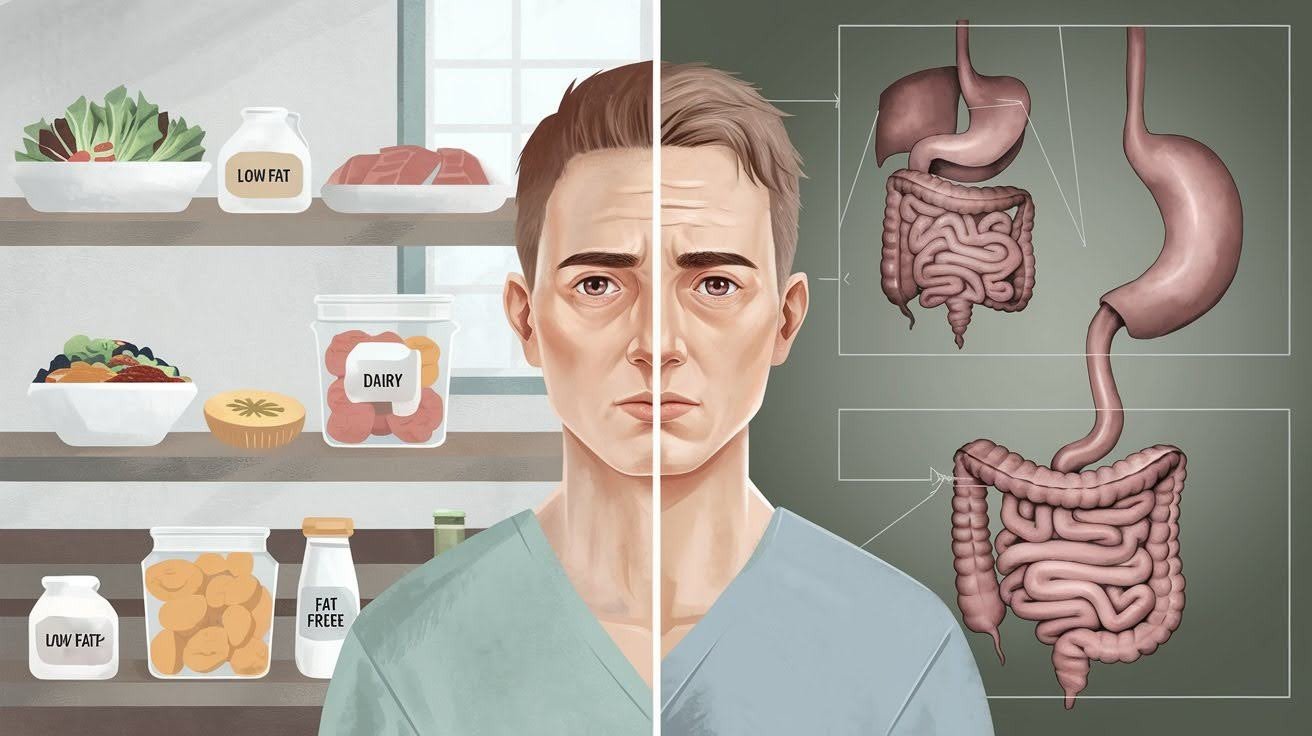
Dietary Choices
The foods you choose to eat or avoid can create gaps in your nutrition that affect how your eyes look.
Unbalanced Diets and Fad Eating Plans Many popular diets cut out entire food groups without considering nutritional consequences. Extreme low-carb diets might eliminate fruits rich in vitamin C. Strict vegan diets can lead to iron or vitamin K shortages if not planned carefully.
Fad diets often promise quick results but ignore long-term health needs. They focus on calories or specific macronutrients while overlooking essential vitamins and minerals. Your body needs a wide variety of nutrients to maintain healthy skin and tissues.
Common problematic patterns include:
- Skipping meals regularly
- Eating the same foods every day
- Following overly restrictive plans
- Focusing only on weight loss
Avoidance of Full-Fat Dairy The shift away from full-fat dairy products has created an unexpected problem. These foods are primary sources of C15:0, the newly identified essential fatty acid.
Low-fat and fat-free dairy products remove the very components your body needs. Many people switched to these alternatives thinking they were making healthier choices. Instead, they unknowingly reduced their C15:0 intake.
Medical or Lifestyle Conditions
Certain health problems and life circumstances can block your body from using nutrients properly, even when your diet seems adequate.
Malabsorption Issues Some medical conditions prevent your intestines from absorbing nutrients correctly. Celiac disease damages the lining of your small intestine, making it hard to absorb vitamins and minerals.
Weight loss surgeries like gastric bypass change how your digestive system works. These procedures can create lifelong absorption problems if not managed properly. Inflammatory bowel diseases also interfere with nutrient uptake.
Other conditions that affect absorption include:
- Crohn’s disease
- Chronic pancreatitis
- Liver disease
- Some genetic disorders
How to Identify a Deficiency
Getting the right tests can help pinpoint which nutrients your body is missing and guide you toward effective solutions.
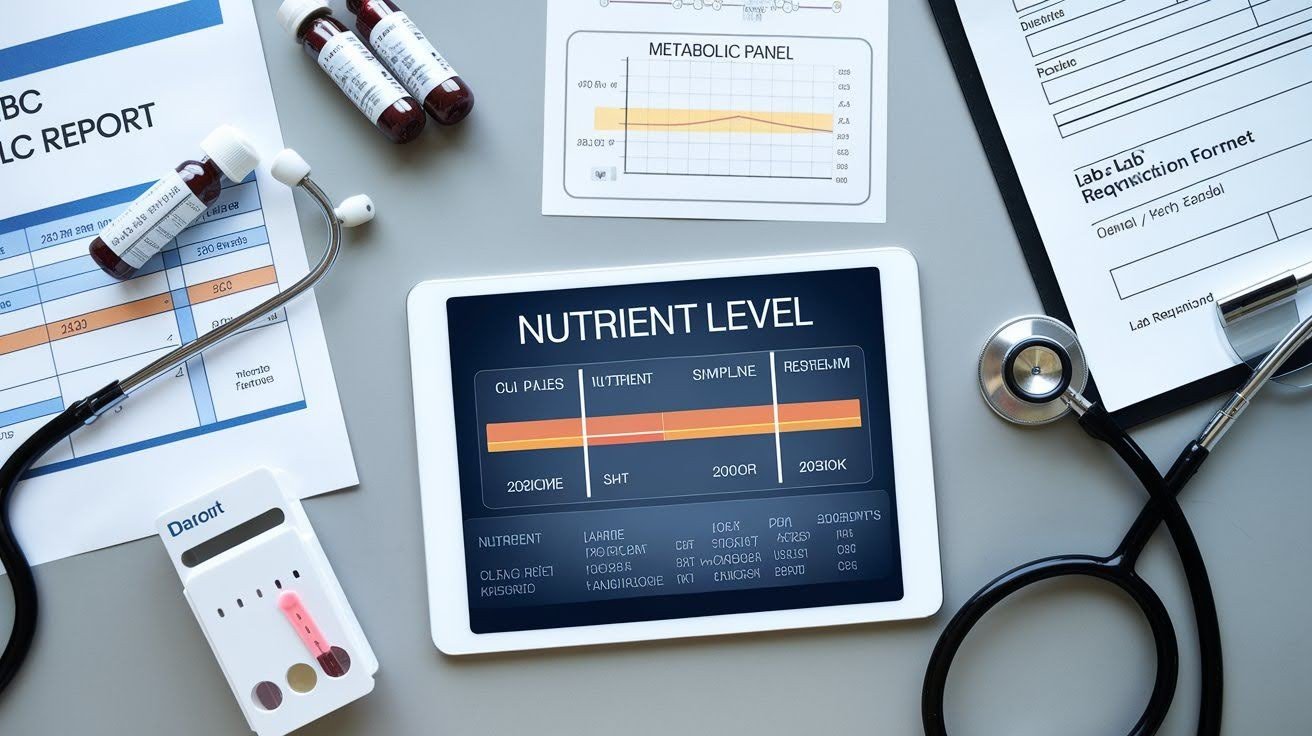
Diagnostic Tools
Blood tests and specialized kits can measure your levels of key nutrients linked to sunken eyes.
Blood Tests for Vitamins, Iron, and C15:0 Your doctor can order comprehensive blood work to check your nutrient status. Standard panels typically include iron levels, vitamin D, and B vitamins. You may need to specifically request tests for vitamins C, E, and K since they’re not always included.
A complete blood count (CBC) shows if you have anemia from iron deficiency. This test looks at your red blood cell count, size, and color. Iron studies go deeper by measuring your body’s total iron stores.
Common tests to request:
- Complete metabolic panel
- Iron studies with ferritin
- Vitamin D, B12, and folate
- Fatty acid profile including C15:0
At-Home Testing for C15:0 Companies like fatty15 now offer home testing kits for C15:0 levels. These kits work similarly to other at-home health tests. You collect a small blood sample using a finger prick device.
The sample gets sent to a certified laboratory for analysis. Results typically come back within a few weeks. The report shows your current C15:0 levels and compares them to optimal ranges.
Home testing offers several advantages:
- No doctor’s appointment needed
- More convenient than lab visits
- Often less expensive than traditional testing
- Results explained in easy-to-understand language
However, home tests have limitations. They can’t diagnose medical conditions or provide treatment recommendations. You should still discuss abnormal results with your healthcare provider.
When to See a Doctor
Certain symptoms suggest you need professional medical evaluation rather than just trying supplements on your own.
Persistent Fatigue Feeling tired occasionally is normal. But exhaustion that doesn’t improve with rest could signal a nutrient deficiency. Iron deficiency anemia is a common cause of chronic fatigue, especially in women.
See your doctor if you experience:
- Tiredness that lasts for weeks
- Difficulty concentrating
- Weakness during normal activities
- Shortness of breath with mild exertion
Skin Changes Sudden or dramatic changes in your skin need medical attention. This includes rapid development of sunken eyes, unusual paleness, or skin that bruises very easily.
Pay attention to:
- Skin that looks much thinner than before
- New dark circles under your eyes
- Wounds that heal slowly
- Dry, rough patches that don’t respond to moisturizer
Unexplained Symptoms Multiple symptoms happening together often point to an underlying deficiency. Don’t ignore warning signs your body is giving you.
How to Fix Deficiencies That Cause Sunken Eyes
Combining the right foods, targeted supplements, and healthy habits can help restore nutrients your body needs for healthier-looking eyes.

Dietary Adjustments
Adding specific nutrient-rich foods to your meals can naturally boost the vitamins and minerals that support eye health.
Foods Rich in Vitamins C, K, E, and Iron Getting nutrients from whole foods is often more effective than supplements alone. Your body absorbs vitamins and minerals better when they come with other natural compounds found in food.
For vitamin C, focus on:
- Citrus fruits like oranges and grapefruits
- Bell peppers (red ones have the most)
- Strawberries and kiwi fruit
- Broccoli and Brussels sprouts
Vitamin K sources include:
- Dark leafy greens like spinach and kale
- Broccoli and cauliflower
- Fish and meat
- Fermented foods like sauerkraut
Boost vitamin E with:
- Nuts and seeds (especially almonds and sunflower seeds)
- Vegetable oils like sunflower and safflower
- Avocados
- Wheat germ
Iron-rich options are:
- Red meat and poultry
- Fish and shellfish
- Beans and lentils
- Fortified cereals and breads
Pair iron-rich foods with vitamin C sources to improve absorption. For example, add bell peppers to your beans or drink orange juice with your iron-fortified cereal.
Quick Tips for Addressing Sunken Eyes
Identify the Problem
- Get blood tests to check vitamin C, K, E, and iron levels
- Request a specialized fatty acid panel for C15:0 testing
- Try at-home C15:0 testing kits for convenience
- See a doctor if you have persistent fatigue or rapid skin changes
Fix Your Diet
- Eat citrus fruits, bell peppers, and berries for vitamin C
- Add dark leafy greens and fermented foods for vitamin K
- Include nuts, seeds, and avocados for vitamin E
- Choose red meat, beans, and fortified cereals for iron
- Switch to full-fat dairy products for C15:0
- Pair iron-rich foods with vitamin C sources for better absorption
Consider Supplements
- Take a high-quality multivitamin to cover basic needs
- Use targeted supplements for confirmed deficiencies
- Try fatty15 capsules for C15:0 without extra calories
- Look for supplements with easily absorbed forms of nutrients
Conclusion
Sunken eyes often signal more than just cosmetic concerns. They can point to underlying nutrient gaps that affect your overall health. The good news is that simple blood tests can identify which vitamins or minerals you’re missing.
Once you know what your body needs, fixing deficiencies becomes straightforward. Adding nutrient-rich foods to your diet, taking targeted supplements, and making basic lifestyle improvements can reverse many symptoms. The newly identified C15:0 deficiency shows how much we’re still learning about nutrition and health.
Maintaining balanced nutrient levels benefits more than just your appearance. When your body gets proper nutrition, you’ll likely feel more energetic and healthier overall. Your eyes may look brighter and less hollow as your body repairs and strengthens the tissues around them.
Pay attention to what your body is telling you through changes in your appearance.
Frequently Asked Questions
Can sunken eyes be completely reversed?
Yes, sunken eyes caused by nutrient deficiencies can often be improved significantly with proper treatment. However, age-related changes may only be partially reversible, and results depend on addressing the root cause early.
How long does it take to see improvements after fixing deficiencies?
Most people notice some improvement in energy levels within 2-4 weeks of addressing nutrient gaps. Visible changes in eye appearance typically take 2-3 months as your body rebuilds healthy tissue.
Is C15:0 deficiency really that common?
Research suggests C15:0 deficiency affects a large portion of the population due to reduced consumption of full-fat dairy products. The deficiency has likely been building for decades as dietary trends shifted toward low-fat alternatives.
Should I take supplements even if my diet seems healthy?
Blood tests are the best way to determine if you need supplements, as even healthy diets can have gaps. Some nutrients like C15:0 are difficult to get in adequate amounts from modern food sources alone.
Are there any risks to taking multiple vitamin supplements?
Taking too much of certain vitamins can cause problems, especially fat-soluble vitamins A, D, E, and K. Always consult with a healthcare provider before starting multiple supplements, and get tested to confirm actual deficiencies.


